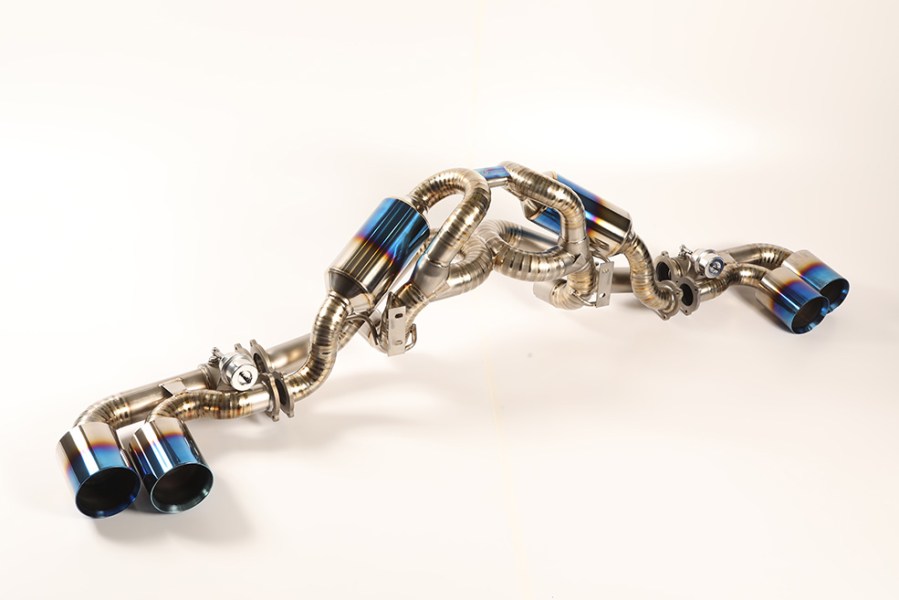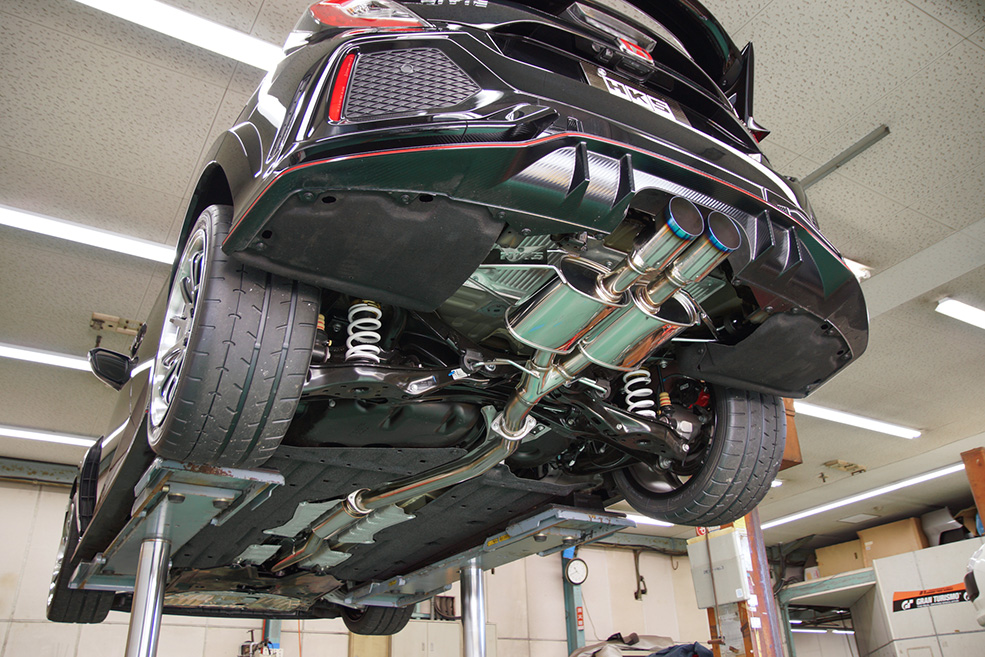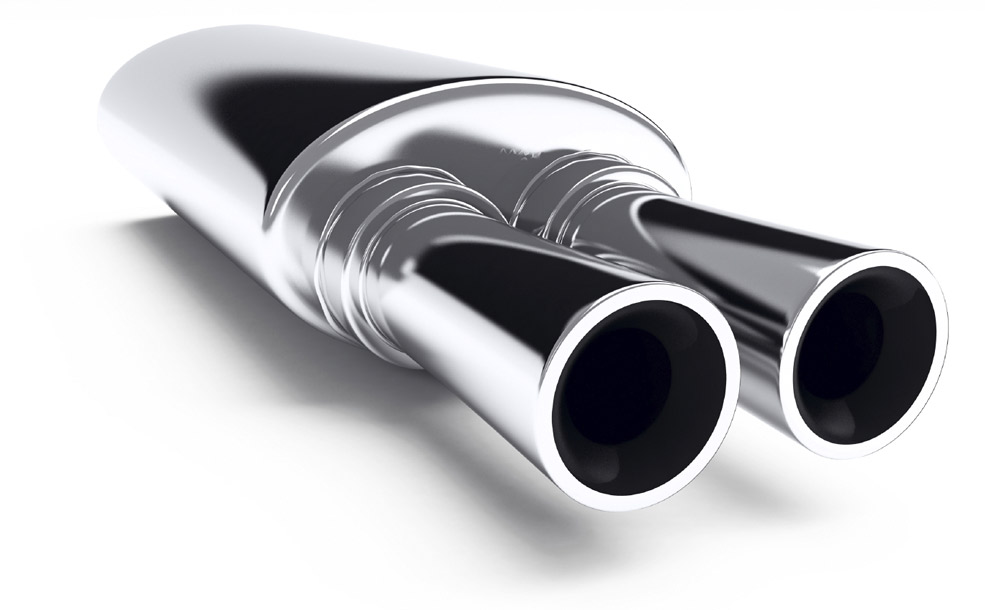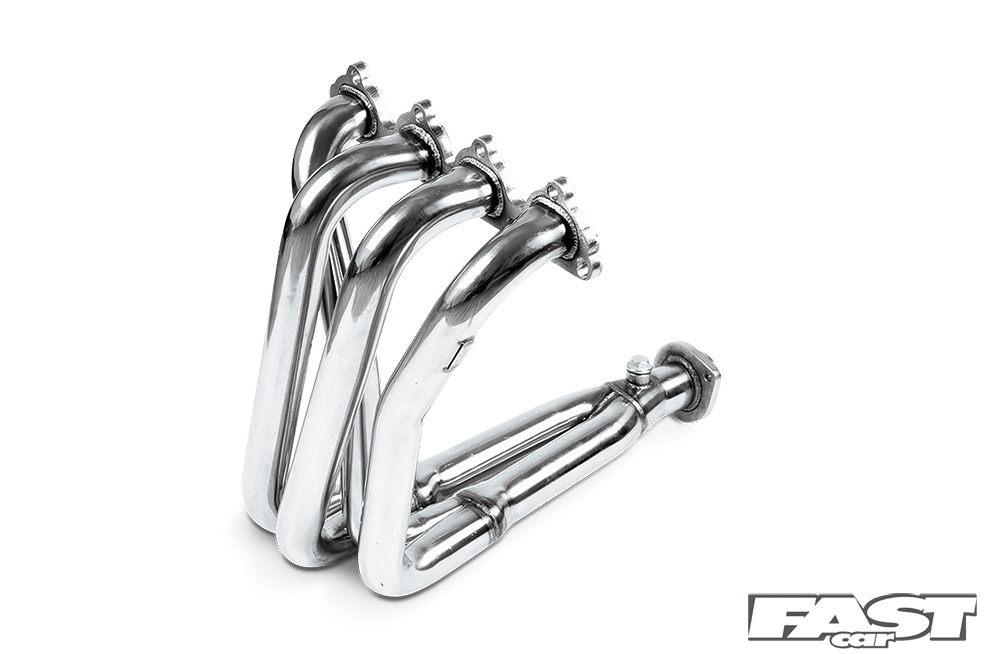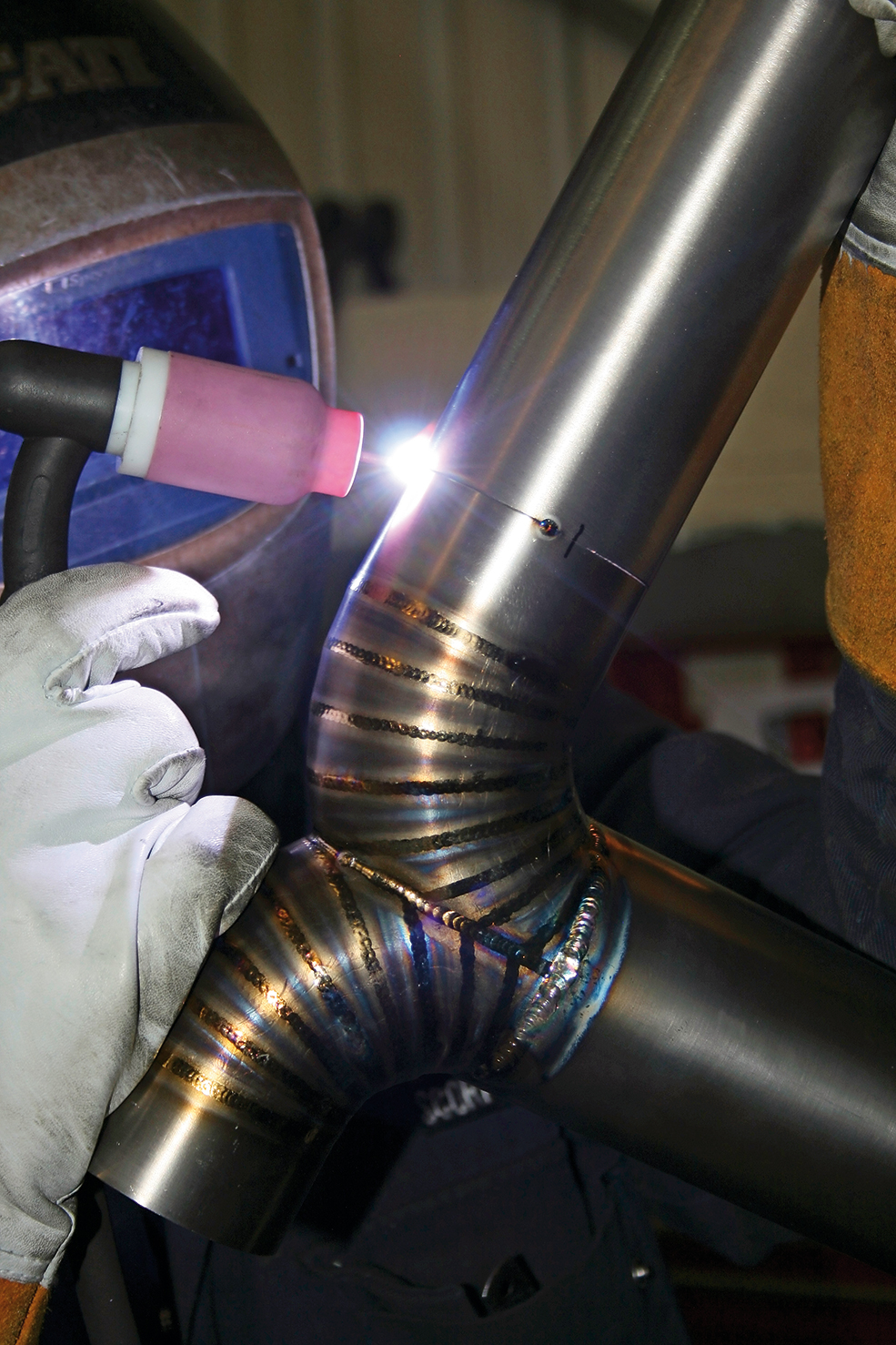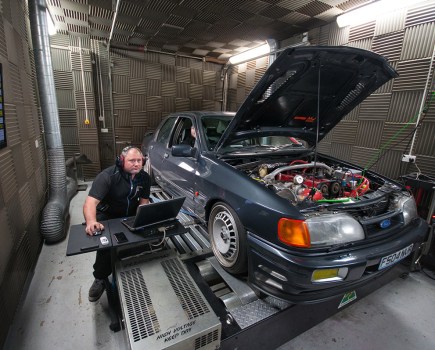Discover all you need to know about car exhaust modifications with our FAQs. Learn about the benefits, legality, and different types of mods.
Are you looking to enhance your car’s performance and sound? If so, you’re not alone. One of the most common modifications car enthusiasts make is to their exhaust system. Not only can exhaust system modifications enhance the sound and overall driving experience of your car, but they also holds the key to future performance tuning. There’s a very good reason an exhaust upgrade is one of the very first modifications owners make in the pursuit of increased performance.
But, choosing the right exhaust upgrade is not always as easy as it may sound. Do you need a cat-back with one less resonator and larger exhaust tips for an aesthetic boost and a more menacing soundtrack? Or are you looking to significantly increase the power output and require performance headers and free-flowing catalytic converters? Or do you need a larger downpipe to unleash the full potential of your car’s turbocharger?
It all depends on what you want to achieve from your car and what stage of the modification process you’re at, and there is no one-size-fits-all answer. What there are, however, is plenty of questions. This is why we’ve compiled our list of FAQs for car exhaust modifications. Read on to learn more about performance exhaust systems, so that you can make an informed decision before upgrading your car’s exhaust.
What is a car exhaust system? And why is it needed?
An exhaust system in a car plays a crucial role in the overall performance and functionality of the vehicle. It is responsible for safely carrying exhaust gases away from the engine, and reducing both noise and vehicle emissions.
A standard car exhaust system comprises various components that work together to ensure efficient performance. The exhaust manifold collects and channels engine exhaust gases into one pipe. Next, the catalytic converter plays a crucial role by converting harmful pollutants into less harmful emissions before releasing them into the atmosphere. The muffler is responsible for reducing the noise levels generated by the engine’s exhaust. Finally, the tailpipe releases the treated emissions into the environment. Each component serves a specific function in the overall operation of the exhaust system, contributing to the vehicle’s performance and maintaining optimal exhaust flow.
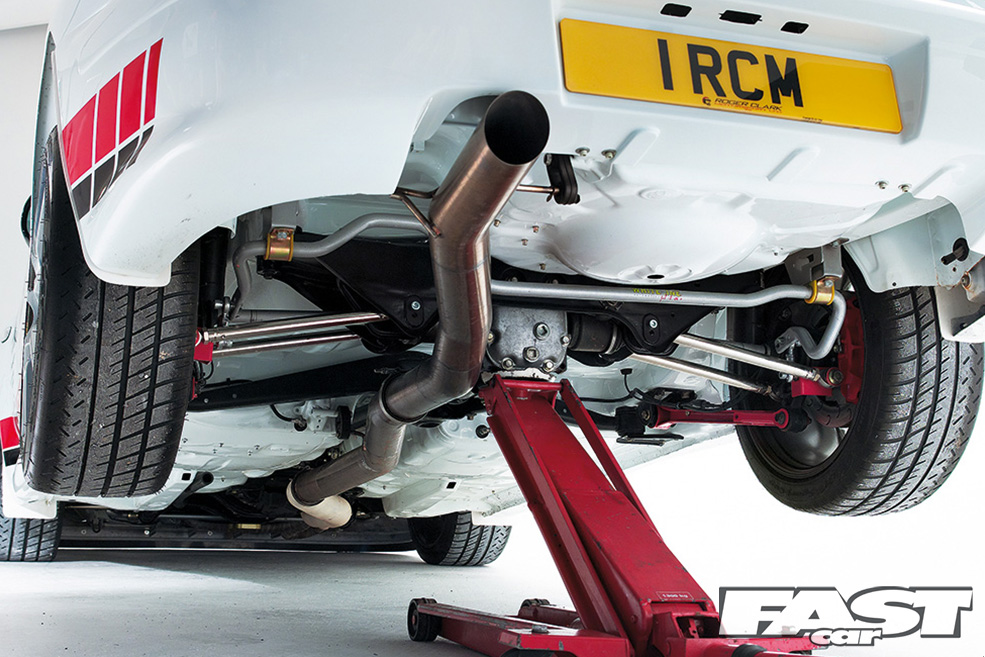
Why should I modify my car exhaust?
There are several reasons why you might want to modify your car exhaust. By making modifications, you can improve performance, increase horsepower, and enhance the sound of your car.
A well-designed aftermarket exhaust system can improve engine efficiency by reducing exhaust backpressure, which helps unleash more horsepower and torque. Additionally, a performance exhaust can enhance the engine’s sound, giving it a deeper, sportier tone. Furthermore, reducing weight with aftermarket exhaust components can improve the car’s overall handling and dynamics.
However, it’s important to check local laws as some modifications may not be legal in all areas.
How much horsepower can I gain from a performance exhaust upgrade?
The horsepower gains from a performance exhaust upgrade can vary depending on the specific modifications you’ve made, your car’s make and model, and other factors like the engine’s state of tune and existing exhaust setup. Generally, a well-designed aftermarket exhaust can offer modest horsepower gains ranging from 5 to 20 horsepower. However, combining the exhaust upgrade with other performance modifications, such as intake upgrades and engine tuning, can lead to more significant power increases.
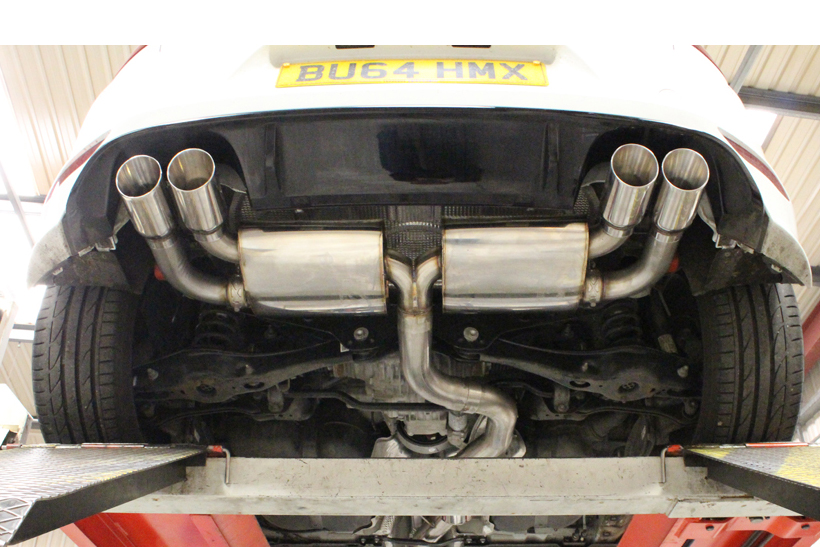
What is the difference between a cat-back and an axle-back exhaust system?
A cat-back exhaust system replaces everything from the catalytic converter (cat) to the rear of the vehicle, including the muffler and exhaust pipes. On the other hand, an axle-back exhaust replaces only the components from the rear axle to the rear of the car, typically including the muffler and exhaust tips. The primary difference lies in the extent of the modification and the potential impact on performance. While a cat-back system can offer more significant gains, an axle-back system can still improve exhaust flow and sound without extensive alterations.
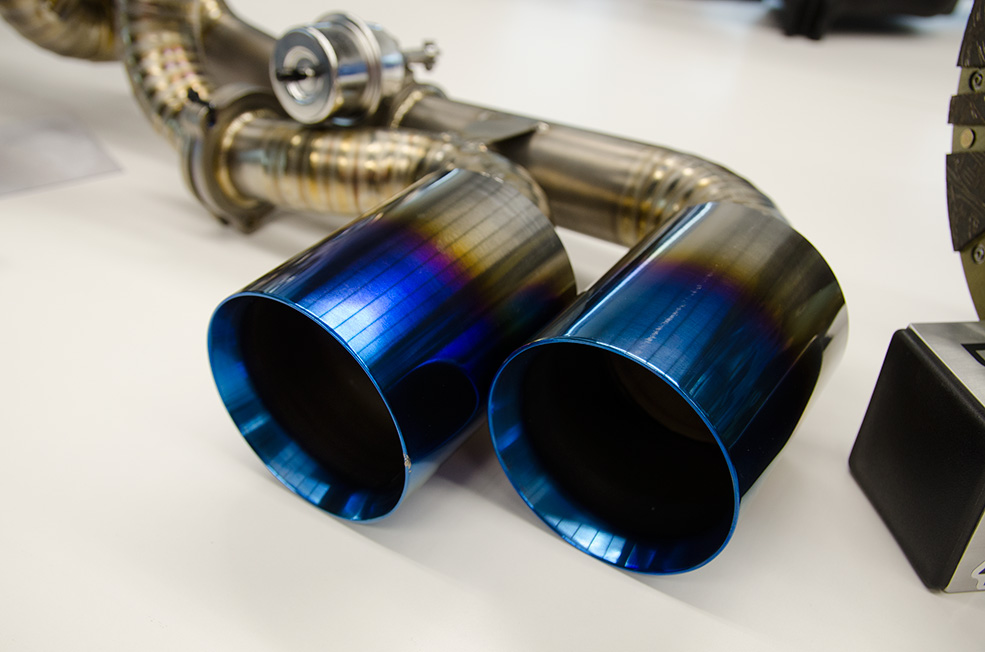
What are the different types of exhaust materials, and which one is the best for performance?
Aftermarket exhaust systems are commonly made from various materials, with the most popular ones being stainless steel, titanium, and aluminized steel. Stainless steel is durable, resistant to corrosion, and provides excellent performance gains. Titanium is exceptionally lightweight and offers excellent strength, but it can be more expensive. Aluminized steel is an affordable option, but it may not be as durable as stainless steel or titanium.
The best material for performance largely depends on your budget, intended use, and preferences. Stainless steel is a popular choice for a balance of performance and cost-effectiveness.
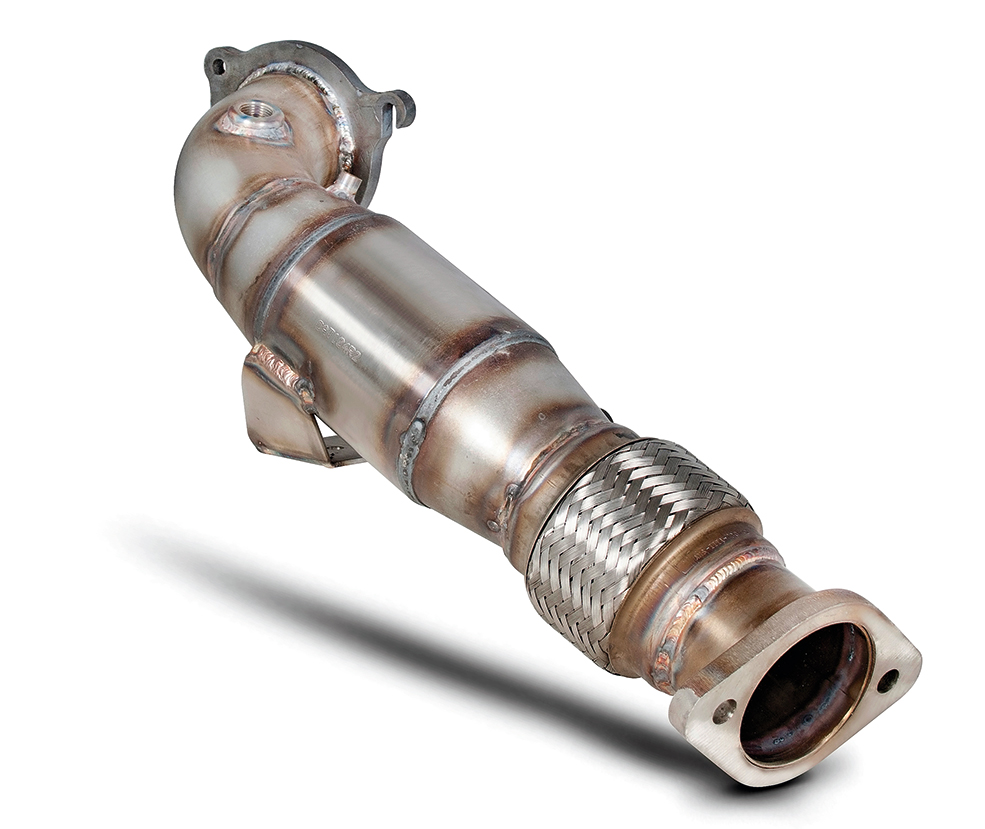
Is it safe to remove the catalytic converter for better performance?
While removing the catalytic converter may offer some performance gains due to reduced back pressure, it is generally not recommended. The catalytic converter plays a vital role in reducing harmful emissions, converting toxic gases into less harmful ones. Removing it can lead to increased pollution and potential legal consequences due to violating emission regulations. Plus, removing the catalytic converter can potentially lead to issues with engine management systems. A sports cat – which reduces back pressure and allows for greater flow while still reducing emissions – is a much better option for street cars.
How does backpressure affect my car’s performance, and should I reduce it?
Backpressure in an exhaust system refers to the resistance encountered by exhaust gases trying to exit the engine. While some backpressure is necessary to maintain exhaust gas velocity for better scavenging and engine efficiency, excessive backpressure can restrict exhaust flow and hinder performance. Reducing backpressure by installing a higher-flowing exhaust system can lead to improved horsepower and torque, especially in high-performance applications.
However, it’s crucial to strike a balance, as completely eliminating backpressure can cause tuning issues and negatively impact low-end torque and drivability.
Will a modified exhaust system make my car louder?
Generally, yes. A modified exhaust system will usually make your car louder, especially if you choose performance-oriented components. A cat-back exhaust with a more open design, larger diameter pipes, and less restrictive mufflers can increase the engine’s sound and produce a deeper, more aggressive tone. Similarly, removing the resonator or installing a straight-pipe exhaust can further amplify the exhaust note. However, it’s important to note that excessively loud exhaust systems may not comply with local noise regulations, leading to potential fines or penalties.
What are the legal noise regulations for modified exhaust systems in different states/countries?
The legal noise regulations for modified exhaust systems can vary significantly between states and countries. Some regions have specific decibel limits for vehicle exhaust noise, while others base their regulations on subjective criteria like “unreasonable noise.” You need to research and understand the noise regulations in your location to ensure your modified exhaust system complies with the law. Additionally, what may be considered legal in one region may not be acceptable in another, so always consider your local guidelines.
Can I still pass emissions tests with a modified exhaust?
Passing emissions tests with a modified exhaust system can be challenging, especially if the modifications significantly alter the emissions control components like the catalytic converter. While some aftermarket exhaust systems are designed to meet emissions requirements and may not pose issues, aggressive modifications can lead to higher emissions levels. If your region requires periodic emissions testing, it’s essential to choose emissions-compliant exhaust components or reinstall the stock exhaust system when necessary.
How often do I need to maintain a modified exhaust system?
The frequency of exhaust system maintenance largely depends on the materials used, driving conditions, and exposure to elements like salt and moisture. Stainless steel and titanium exhaust systems are more resistant to corrosion and generally require less frequent maintenance. Regular inspections for signs of damage, leaks, or loose components are essential to catch potential issues early. Additionally, cleaning the exhaust tips periodically can help maintain their appearance.
What role do exhaust headers and manifolds play in performance upgrades?
Exhaust headers, also known as exhaust manifolds, collect exhaust gases from the engine’s cylinders and direct them into the exhaust system. Upgrading to performance exhaust headers can enhance engine performance by improving exhaust gas flow, reducing back pressure, and increasing scavenging efficiency. Well-designed headers with smooth bends and equal-length tubes can lead to noticeable horsepower and torque gains, particularly in high-revving engines. However, proper tuning is essential to fully realize the benefits of performance exhaust headers.
Can I use an exhaust system from a different car model on my vehicle?
While it may be possible to use an exhaust system from a different car model on your vehicle, it’s generally not recommended unless the components are specifically designed to be compatible. Exhaust systems are tailored to fit specific vehicles, accounting for differences in chassis design, engine placement, and other factors. Attempting to fit an incompatible exhaust system can lead to clearance issues, exhaust leaks, and potential damage to the vehicle. It’s best to choose exhaust components that are explicitly designed for your car model to ensure proper fitment and performance.
Can I install an aftermarket exhaust system myself, or do I need professional help?
Installing an aftermarket exhaust system can vary in complexity depending on the make and model of your car and the specific exhaust components you choose. Some exhaust upgrades are relatively straightforward and can be installed by mechanically minded car enthusiasts with the right tools and knowledge. However, more complex installations may require specialized tools, welding, or adjustments to ensure proper fitment and performance. If you are unsure about the installation process or the exhaust system’s compatibility, it’s recommended to seek professional help from experienced mechanics or automotive technicians.
Are car exhaust modifications legal?
The legality of car exhaust modifications varies depending on your location and local regulations. In most cases, exhaust mods are allowed, but altering the exhaust system beyond the manufacturer’s specifications can sometimes be considered illegal, particularly if it results in increased noise levels or emissions above the allowed limits. It’s best to research and understand your local laws before making any modifications to avoid potential fines or legal issues.
Will modifying my car’s exhaust void the warranty?
In some cases, modifying your car’s exhaust system can void the manufacturer’s warranty, especially if the modifications directly impact the vehicle’s emissions or drivetrain. However, some aftermarket exhaust manufacturers offer warranties for their products, ensuring their compatibility and performance with your vehicle. It’s crucial to research warranty terms and consult with the manufacturer or a reputable mechanic before making any modifications.
Want more info?
Looking for more information about car exhaust modifications? At Fast Car we’ve got tons of cool and informative features about modified car exhaust systems. Check out of some of these:

